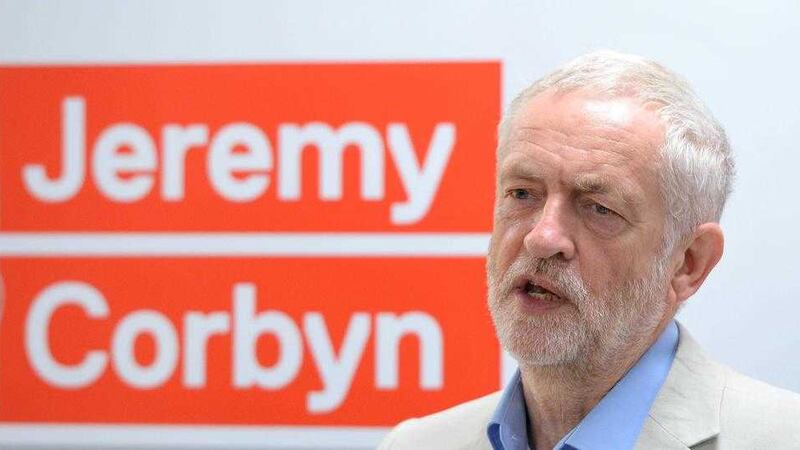Are we really living in genuinely revolutionary times? The Conservative Party's unexpected election victory in May 2015, Jeremy Corbyn's unexpected victory as Labour leader last September, the unexpected victory for Brexit, Cameron's resignation, the implosion of the Remain camp, civil war in Labour, the farce of the Ukip leadership campaign to replace Farage (assuming, of course, he actually has gone) and a potential long term constitutional crisis for the UK - all of this suggests that revolution is in the air.
And yet we're seeing very little to suggest that the revolution will, in fact, amount to much more than a hill of media beans.
The tens of thousands of Labour members who support Corbyn - and they tend to be the sort of people who prefer doctrinal purity and certainty to the need to adapt to new and changing political/societal realities - have got it into their heads that he is the face and voice of revolution. He isn't. He is a latter day and less eloquent Michael Foot: and Foot was the man who made socialism electorally redundant in the United Kingdom. He was helped, enormously, by the stupidity and arrogance of trade union 'barons' who believed that they spoke for the working classes. But what really did for him, as it did for socialism, was the rise of a post-war generation who didn't just want to be defined by class politics but who did want to leave factory floors and mines and head off to universities and professional careers.
The next mistake Labour made was to replace the unelectable Foot with the unintelligible Neil Kinnock and then - by way of John Smith - somehow ending up with Tony Blair. Blair wouldn't have recognised socialism if it had slept beside him in bed; and I'm not even sure he had much of a handle on centre-left politics. His faux convictions and ideology were based on 'Blairism,' a looking glass, focus group research and doe-eyed soundbites culled from the Reader's Digest and Mystic Meg.
The real problem with Blair was that he was just another kind of Conservative: doing to the trade unions and Labour's remaining socialist fringes the sort of thing that a real Conservative would love to have done. His appeal was to those who were willing to pay almost any price to stop the real Conservatives winning an election; those who had grown tired of almost 20 years of Conservative governments (the sort of people who weren't really fussed about leftist politics, but who thought that occasional change was good for democracy), and those fed-up Labour voters who had wandered off to the Steel/Owen/Jenkins/Williams Social Democratic breakaway party in 1981.
But under Corbyn Labour is back to the levels of support it had with Foot in the 1983 general election. His parliamentary party is in open revolt: most leaders endure a cabal of internal opposition, but in his case the cabal is his support base. He will probably see off Owen Smith's leadership challenge, but so what? A successful leader needs to be able to build a coalition of interests, voters and members (including the thumping endorsement of his MPs) if he is to win an election. Yes, there may be 2-3 million voters attracted by what they think is socialism, but that isn't enough to elect a government.
What is missing in UK national politics - and has been for over thirty years - is an attractive, credible, genuine, left of centre political party. If Labour wants to be that party again (the party that created the welfare state) then the anti-Corbyn wing of the parliamentary party needs to break away if Corbyn wins the leadership election. And, unlike what happened when the SDP was formed in 1981, it seems likely that the new group would be the second largest party in Westminster - with all the advantages such a position would bring.
Some of the 'movements' which back Corbyn, Momentum, for instance, seem to believe that he can lead Labour to a general election victory with the sort of policies which were rejected under Callaghan, Foot and Kinnock. They are blind to the fact that most of Labour's previous core vote has moved on and away from those policies. I accept that many of them didn't move to 'Blairism'; but if they are to be won back then it will be to the real centre left rather than the mythical far left.
Corbyn can't deliver or promote centre left policies because neither he, nor his supporters, are actually centre left.
The SDP's Gang of Four didn't represent a revolution in 1981. But a Gang of 172 (the number of MPs who voted against Corbyn in the recent vote of confidence) is big enough to become the sort of revolution both Labour and UK politics could do with at the moment. Bring it on.








